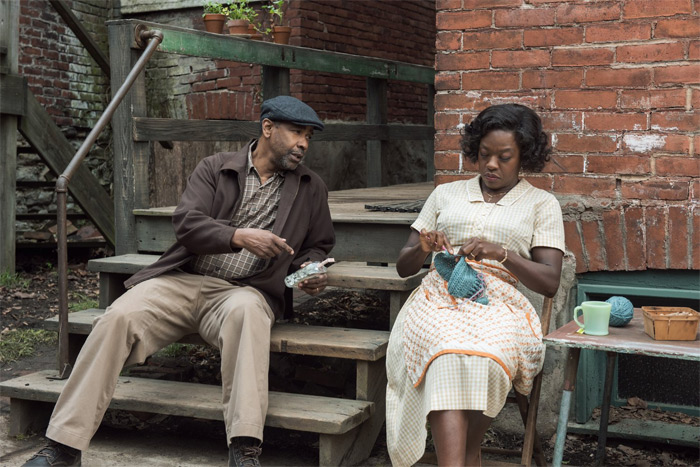Directed by Denzel Washington
Picturehouse, Liverpool
From 10th February 2017
Reviewed by Colin Serjent
Some critics have commented that this is a filmed record of the stage play that the movie is based upon. That is the case, to some degree, but you do not get the close-up shots, of which there is an abundance, plus the very abstract cinematography, notably in back shots, when you visit the theatre!
it is adapted from August Wilson’s Pulitzer-winning 1983 creation. Denzel Washington, who is also the director, gives an impressive performance as a bitter, outspoken and stubborn middle-aged character in the form of Troy Maxson, having played the part in the play’s 2010 Broadway revival.
He also reunited the adult ensemble of that production. Namely Viola Davis as Troy’s long-suffering but devoted wife Rose, Mykelti Williamson as his brother Gabriel – who has a metal plate in his head following his time in the war against Japan, leaving him incapable of running the house which Troy and his family have inherited – Russell Hornsby as his musically talented son Lyons – but Troy oddly does not even bother to see him performing at the local club – and Stephen Henderson as his pal Bono, who seems to be his only friend.
The latter is generally the only white character in the film, except for a few snatches of local company executives of the waste retrieving company which Troy works for. He is described as a sanitation worker, but in effect he is a ‘bin man’.
The film is shot entirely on location in a working class district of Pittsburgh, set in the 1950s.
It is a stark depiction of Troy’s life, in particular the big chip on his shoulder for not being more successful as a baseball player, which he blames on prejudice against black people. Nothing changes in America! In essence Wilson wrote about the race relations in America at that time and the culture of African-Americans.
Most of the declamations, loudly uttered by Troy against whoever irks him at a particular time, take place in the back garden, not inside the interior of his house, which you would expect from a play. It’s a wonder his neighbours did not ask him to ‘put a lid on it.’
At times the dialogue is over-eloquent and prose-like but overall Fences – the symbolism of the wooden structure is often apparent – is very true to life, combining wisdom, despair, passion and humour in the story’s mix.
